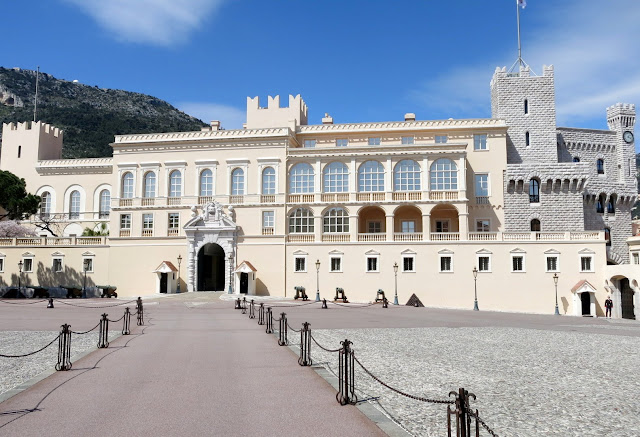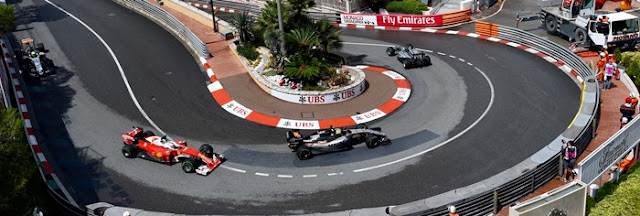Held in one of the most beautiful locations in the world, the celebrations attract thousands of people whether they be actors and actresses at the top of their game or big name directors. The glitz and the glamour will definitely be arriving to the French Riviera on the 17th to the 28th of May.
Timeline
July 1938 - The 'Venice Mostra' was the first international film festival. It saw pre-war film producing countries gather together to show their creations. An American film was unanimously judged as the favourite but due to political tension, high pressure from Hitler and the various propaganda films, an Italian film won the highest accolade, 'The Mussolini Cup', instead.
This caused great outrage among the democratic countries. France, Great Britain and the USA all left the Mostra and vowed to never return.
May 1939 - Feeling like a new festival needed to replace the Mostra, the town of Cannes and the government signaled the official establishment of the 'International Film Festival'.
June 1939 - The announcement of the International Film Festival is made in France to the media.
23rd August 1939 - The German-Soviet Pact was announced. Tourists fled from Cannes at a rapid pace and put all plans for the festival on hold. One film was privately screened.

The Hunchback of Notre Dame: privately screened in 1939
1st - 20th September 1939 - The first festival is initially scheduled to take place. All film-producing countries were invited to ease already high tensions, including Italy and Germany. Their invitation was declined.
1st September 1939 - Germany invaded Poland. The film festival was scheduled to start from this date but unfortunately never happened.
3rd September 1939 - World War II is declared.
20th Sept 1946 - The International Film Festival is launched and opened at the gardens of the Grand Hotel. An incredible atmosphere was enjoyed by all, including fireworks, fashion shows and music. Featuring 19 countries, big names in the industry were already showing their interest such as Walt Disney and Roberto Rossellini.
1948 & 1950 - Events were cancelled due to the lack of funds.
Venice Mostra 1949
1950's - The festival's popularity soared thanks to names such as Grace Kelly, Brigette Bardot, Sophia Loren and Cary Grant all showing their interest.

Eternally beautiful Grace Kelly, 1955
1952 - The event was moved to the month of May where it has stayed ever since.
1956 - Six films were censored due to diplomatic events involving the Cold War.
1959 - The Culture Minister, Andre Malraux, became Head of Festival Organisation and had the responsibility of approving the selection of films sent in. He pushed for bolder and more politically charged films to be shown.
The Festival General Delegate, Robert Favre Le Bret, began travelling to broaden the selection of industry professionals involved in the event. This saw stars such as Sean Connery, Bette Davis and John Wayne attend. By allowing this to happen, the film industry was better promoted as a whole and encouraged more networking.
Andre Malraux, Head of Festival Organisation
May 1968 - This year's festival was upstaged and disrupted due to the event becoming more of a forum for protests and meetings.
1971 & 1972 - Veteran actors, Charlie Chaplin & Groucho Marx, were tributed.
1972 - The Festival de Cannes became recognised as a public service.
1983 - The new building was completed for the ceremony named 'Palais des Festivals et des Congres'.

The Palais de Festival et des Congres
1984 - The event began renewing its determination to seek out new talents and defend their freedom of expression. More diverse countries like India, China and Australia were featured and emerging directors such as Lars von Trier and Spike Lee shared their creations.
1987 - This year's event saw a controversial closing ceremony where the winner of the Palme d'or raised his first to the jeers of the public.

Maurice Pialat - Winner of the Palme d'or 1987
1988 - The old site of the Film Festival, the Palais Croisette, is demolished.
1989 - Hundreds of directors are brought together for a major debate regarding the celebration of the fall of the Berlin Wall as well as the anniversary of the Declaration of Human & Citizen's Right.
1990's - This decade included directors from all over the world including Africa and Asia.
1997 - The 50th anniversary saw all the Palme d'or winning directors gather on stage.
1998 - A category for short and medium length films was created.
2000 - Young directors were invited to the event to polish up their screenplays and writing skills at the 'Residence'.
Gilles Jacob became the President of the Festival and introduced a new three-act opening ceremony.

Gilles Jacob: President of the Film Festival
2004 - 'Cannes Classics' was introduced and presented restored copies of older features. They also paid homages to the film making industries and documentaries.
2005 - A new organisation was created, 'Atelier', which helps 20 directors per year fund their projects.
2007 - This year marked the 60th anniversary. Thierry Fremaux was appointed as General Delegate.
33 of the world's greatest directors took the stage to present their 3 minute long feature on the theme of the cinema hall.
2010 - 'Cannes Court Metrage' was made to show global creativity in the short film sector.
2014 - Pierre Lescure was elected President of the Festival de Cannes, taking over from Gilles Jacob who took the title of Honorary President.
Pierre Lescure: President of the Festival de Cannes 2014
17th - 28th May 2017
And this year is the 70th anniversary!
With so much to look forward to, it really is the biggest year yet. Italian actress, Monica Bellucci, will be hosting the opening and closing ceremonies and the event's gorgeous poster features actress, Claudia Cardinale.
We can't wait to see the stars take to the red carpet and find out who wins the prestigious Palme d'or award this year.

Monica Bellucci: Host of the opening & ceremonies 2017
Don't want to miss out on next year's event?
Why not speak to one of our French Riviera villa and apartment consultants today:
+44 (0) 1244 629963
enquiries@elegant-address.com












































































